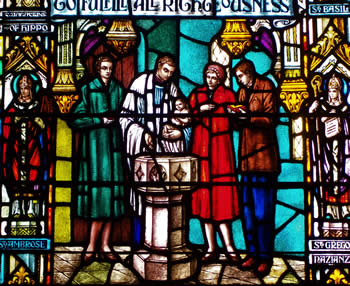Last week, presidential candidate Rick Santorum defended his previous statement that he was sickened by John F. Kennedy’s famous speech to the Greater Houston Ministerial Association in 1960. Santorum referenced the following part of Kennedy’s speech:
“I believe in an America where the separation of church and state is absolute —where no Catholic prelate would tell the president (should he be Catholic) how to act, and no Protestant minister would tell his parishoners for whom to vote — where no church or church school is granted any public funds or political preference — and where no man is denied public office merely because his religion differs from the president who might appoint him or the people who might elect him.”
As others have pointed out, context is crucial to understanding these words. Kennedy wrote to convince Protestant ministers that, if elected, he wouldn’t be taking orders from Rome. By linking the then common American prejudice against Catholics to earlier persecution of other religious minorities, he hoped to persuade these men of faith that religious discrimination of any kind was unworthy of them:
“I believe in an America that is officially neither Catholic, Protestant nor Jewish; where no public official either requests or accepts instructions on public policy from the Pope, the National Council of Churches or any other ecclesiastical source . . . .
For while this year it may be a Catholic against whom the finger of suspicion is pointed, in other years it has been, and may someday be again, a Jew— or a Quaker or a Unitarian or a Baptist. It was Virginia’s harassment of Baptist preachers, for example, that helped lead to Jefferson’s statute of religious freedom. Today I may be the victim, but tomorrow it may be you — until the whole fabric of our harmonious society is ripped at a time of great national peril.”
Certainly, Kennedy was not trying to argue that faith had no place in the moral discernment of politicians or citizens. His audience would never have bought into that. They accepted Protestant voices in the public sphere; they were trying to decide if they could welcome Catholic voices as well. And by reassuring them that he would be a president for all Americans, not just Catholics, he earned their trust, and the trust of many other Protestants. Catholics at the time were not disgusted but proud and they went on to vote for him in record numbers.
But Kennedy did not say everything that needs to be said about the role of religion in public life. By separating the “religious issue” from other “critical issues” the country faced in 1960, he drew the line between religion and politics too starkly. More helpful to our contemporary discussion is President Obama’s 2006 speech in which he provocatively said:
But what I am suggesting is this – secularists are wrong when they ask believers to leave their religion at the door before entering into the public square. Frederick Douglas, Abraham Lincoln, Williams Jennings Bryant, Dorothy Day, Martin Luther King – indeed, the majority of great reformers in American history – were not only motivated by faith, but repeatedly used religious language to argue for their cause.
So to say that men and women should not inject their “personal morality” into public policy debates is a practical absurdity.”
If this is what Santorum is after, he might find that he and his chief rival aren’t as far apart as he thinks. If Catholics embrace this vision, they can feel fine about viewing political issues through the lens of faith, making their case, and welcoming everyone else in the public square to do the same.



Thanks for this. I think it’s a good, balanced assessment of JFK’s speech. Thanks, too, for the reminder about Obama’s 2006 speech. I must say, it rings quite oddly in my ears in light of the recent HHS debates. I wonder what a systematic analysis of Obama on the role of religion in the public sphere would be. My (unresearched!) instinct is that it would be very very positive around religion’s (or “personal morality’s”) role in motivating people to work in social justice causes and very negative around its role in anything related to sex, women, or marriage. It would be a very interesting project to show, as you suggest at the end, that Obama and Santorum are not that far apart in a basic vision of how religion should function in the public sphere, but then also to show how their radically different understandings of what religion is, means, and applies to yield their strong differences.